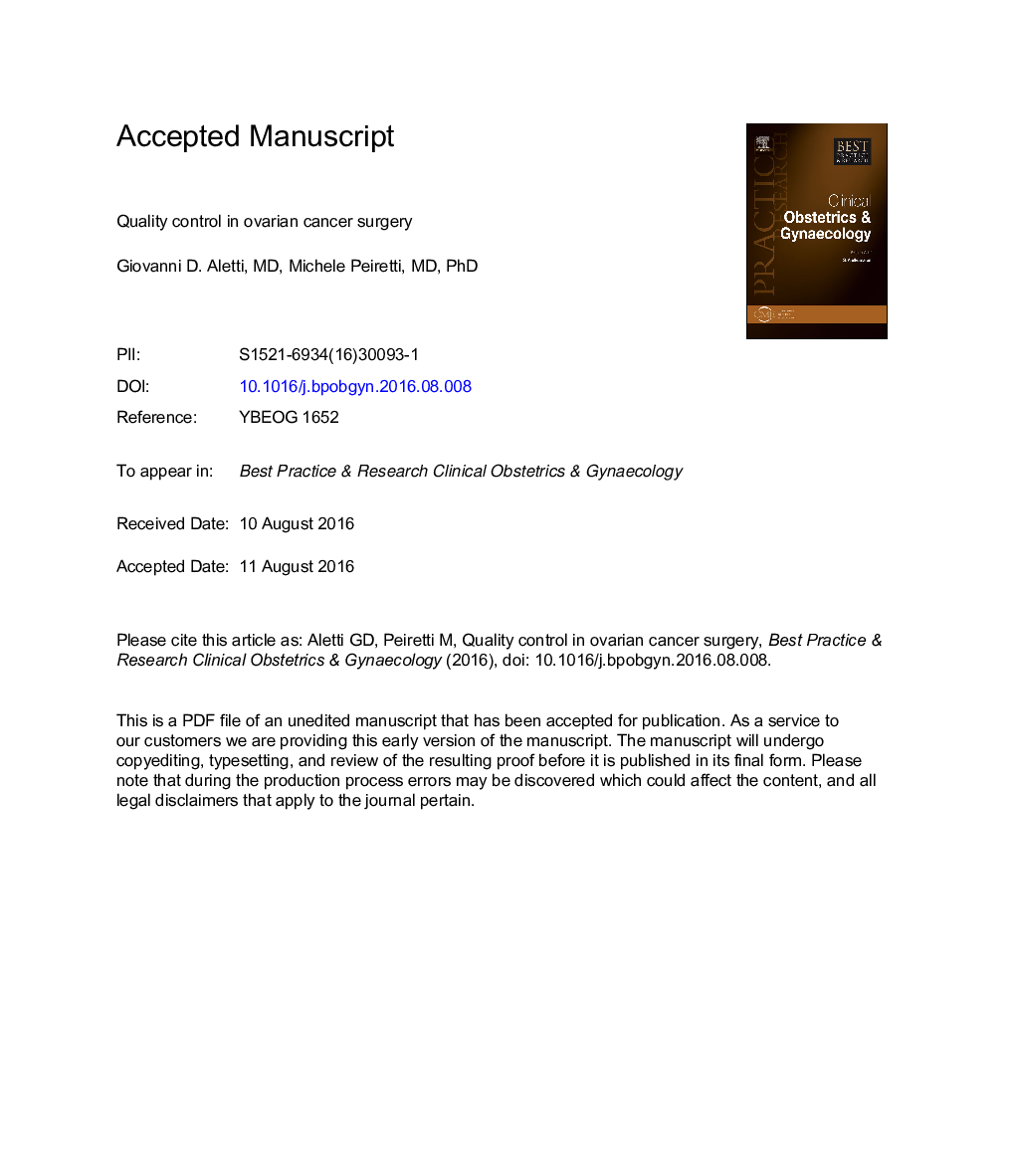| Article ID | Journal | Published Year | Pages | File Type |
|---|---|---|---|---|
| 5688737 | Best Practice & Research Clinical Obstetrics & Gynaecology | 2017 | 34 Pages |
Abstract
The optimal surgical management of patients with ovarian cancer includes a thorough staging with peritoneal and retroperitoneal assessment for early disease stages and a complete debulking with the removal of all macroscopic tumor for advanced disease stages. Disparities across different institutions in terms of optimal surgical management have been described. Surgical quality control programs constitute a real possibility to ensure and improve the quality of the surgery performed. Guidelines for surgery in early and advanced disease stages have been recently reviewed by the National Comprehensive Cancer Network (NCCN), and several quality indicators (QIs) have been proposed. These QIs can be used as a powerful tool to monitor, compare, and improve the quality of surgery across different centers and institutions. Furthermore, a transparent report of surgical outcomes through the creation of National and International Networks, adherence to the NCCN guidelines, and the establishment of quality control programs with a strong training and education component are key factors in enhancing the quality of surgery for patients with ovarian cancer.
Related Topics
Health Sciences
Medicine and Dentistry
Obstetrics, Gynecology and Women's Health
Authors
Giovanni D. MD, Michele MD, PhD,
